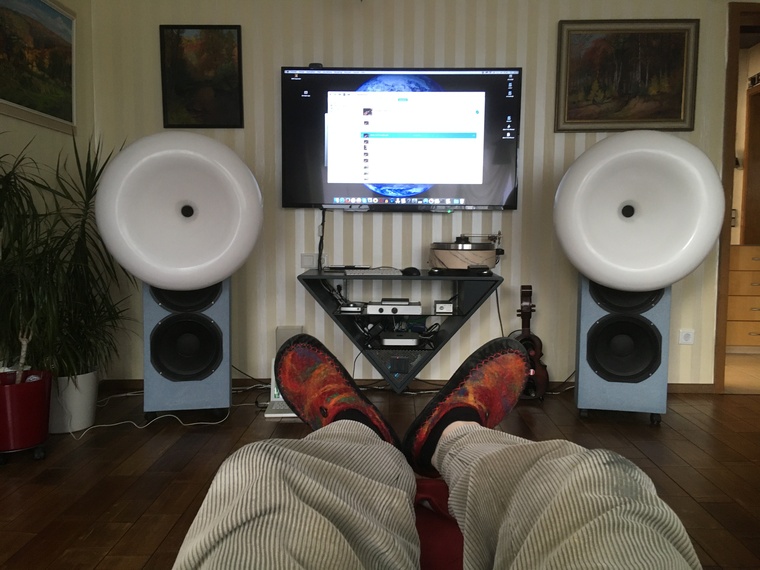I will keep this thread alive as a personal diary. I am not "looking" for advice, criticism or praise but those that have been through this probably have some additional stuff. Maybe we can keep the content level high to make it easier in the future to find stuff?
Step one was to pull teeth, step two is repair the jaw and after that is done and solid, the final step will be implanting anchors to hold the dentures solidly in place. This could be a year of updates. I do not recommend letting anyone smash the trumpet into your face... The trumpet was repaired far more quickly!
Well, step one happened on Monday. All the teeth on my lower jaw were removed and I got "dentures". No sutures were necessary even although one wisdom tooth was impacted.
The instructions from the doc were to leave the dentures in for 24 hours (to keep the tongue out of the sockets). Robin was a good boy. Antibiotics and Novaminsulfon pain relievers kept everything manageable. Talking is a major challenge as the tongue does not know where to go. I slept sitting up - following instructions. Porridge for breakfast, soups for lunch and dinner.
Yesterday (Tuesday) was just a maintenance day, I tired quickly and there was still a bit of bleeding. Took my antibiotics and only a pain reliever before bed. Talking is still challenged. I was able to sleep laying down. Porridge with berries for breakfast, soups for lunch and dinner.
Today, Wednesday was actually pretty good. No pain relievers needed. Still get tired faster than usual. Have trouble with all of the "S" consonants needed in english and german - lots of sibillance - sounds like a really cheap stereo! Most of the wounds are closed and there was no bleeding worth mentioning - so I pulled out my C-trumpet and played 30 minutes of easy long tones and lip slurs. Even with the dentures, everything still worked. My tone had a bit of air - but always does when I take 2 days off. Still, the only food that I can eat is minced very fine so it is immediately "swallowable". I am rinsing with salt water a couple of times per day. The dentures are staying remarkably in place but are too high on the left side. Just waiting for the swelling to go down so that adjustment makes sense. Porridge for breakfast, soups for lunch and dinner. I tried cutting up some sausages for the soup, but was not successful the first time around - they were not small enough to swallow directly. A mincer solved the problem but the sausage taste was too diluted by the soup. Probably should not have tried.
The rest of the day I spent voicing some new horns for my stereo!

Got pretty close but counter tenors still sound like crap. Well, tomorrow is also a day and I'll see how my ears work.
My next dental appointment is Monday to get the dentures adjusted. After that, I go back to work. Next concert series in 3 weeks...

